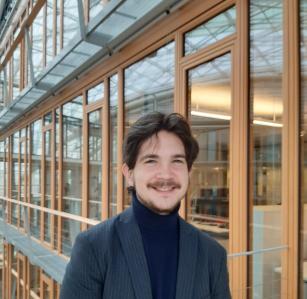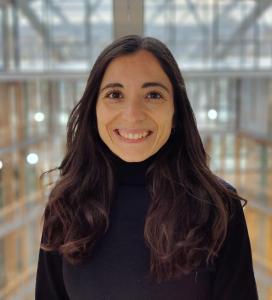Il a fallu inventer le terme « banque éthique » pour un établissement de prêt d’un nouveau genre. C’est dire si les principes moraux sont la dernière chose à laquelle la plupart des gens pensent lorsque le sujet des banques est abordé. Néanmoins, certains établissements financiers remettent en question ce cliché et redéfinissent ce que signifie être une banque aujourd’hui.
Banca Etica en est un bon exemple. Elle est la première banque de financement éthique d’Italie et entend susciter une petite révolution dans le secteur bancaire. Avec son dernier projet en date, Banca Etica entend lutter contre l’exclusion financière des personnes les plus vulnérables. L’initiative cible les femmes, les réfugiés et les entreprises dans les régions moins développées en Italie.
« Nous soutenons qu’il n’est pas incompatible d’accoler “éthique” à “banque” : il s’agit là d’une vraie perspective assortie d’un débouché commercial », déclare Tommaso Rondinella, responsable des modèles d’impact et des évaluations socio-environnementales chez Banca Etica. « Ce concept représente notre passé, notre présent et notre avenir. »
Le nouveau projet de Banca Etica devrait stimuler la mobilisation de 168 millions d’euros d’investissements et créer un effet d’entraînement positif dans la société. La Banque européenne d’investissement soutient Banca Etica au moyen d’un prêt de 60 millions d’euros, signé en juillet 2024.
- Découvrez comment la première banque italienne entièrement en ligne recourant à l’informatique en nuage finance des petites entreprises dans le Mezzogiorno.
La société avant le secteur bancaire
Les centres d’accueil jouent un rôle essentiel pour faciliter l’intégration sociale des réfugiés. Ils ont néanmoins souvent du mal à obtenir le fonds de roulement dont ils ont besoin. En Italie, ces centres peuvent demander le remboursement de leurs dépenses liées aux activités d’accueil auprès de l’État, mais les délais d’attente sont souvent longs (jusqu’à 36 mois). Ce décalage pèse sur la gestion quotidienne des centres d’accueil et des services sociaux qu’ils offrent, ce qui accroît le stress social et financier des réfugiés. Cette situation souligne la nécessité de disposer de possibilités de financement plus rapides.
Avec sa nouvelle initiative, Banca Etica mettra à disposition au moins 30 % de l’enveloppe de ressources pour que les centres puissent continuer à accueillir les demandeurs d’asile et les réfugiés sur tout le territoire. Grâce à l’augmentation des financements pour ces centres, les services sociaux sont meilleurs et aident les réfugiés à s’intégrer et à entrer sur le marché du travail.
« Nous nous efforçons de soutenir un solide cadre d’accueil et d’intégration », indique Tommaso Rondinella. « Les projets financés à ce titre pourraient inclure des cours de langue et des formations professionnelles de sorte à intégrer les réfugiés dans les communautés locales. »

Ce financement soutiendra également l’emploi équitable et l’entrepreneuriat des réfugiés, en contribuant à leur intégration sur les marchés du travail dans des conditions respectant la liberté, l’équité, la sécurité et la dignité humaine.
« Nous avons mis en place des critères spécifiques qui imposent aux bénéficiaires finals de créer des possibilités d’emploi et de formation professionnelle pour les réfugiés et de les associer à des fonctions de direction ou à leurs activités entrepreneuriales », explique Aysen Isaoglu, économiste à la Banque européenne d’investissement qui a travaillé sur l’accord.
Défendre les femmes et les entreprises
Les entrepreneuses sont souvent confrontées à des obstacles plus nombreux que les hommes lorsqu’elles cherchent à obtenir un financement pour créer ou développer une entreprise. Et lorsqu’elles en obtiennent un, elles reçoivent généralement un montant plus faible assorti de taux d’intérêt plus élevés et de sûretés plus importantes que les hommes.
C’est la raison pour laquelle au moins 30 % du financement fourni par Banca Etica iront aux petites et moyennes entreprises dirigées par des femmes et aux activités qui soutiennent les possibilités d’emploi et les services pour les femmes. L’opération vise à réduire les disparités entre les sexes, en facilitant l’accès des femmes au financement et la croissance de leurs entreprises.
« Il n’y a pas plus gratifiant que de promouvoir des initiatives réellement porteuses de transformation et innovantes, qui s’adressent à des secteurs généralement exclus », ajoute Tommaso Rondinella.
Réduire les disparités régionales
Les petites et moyennes entreprises situées dans les régions moins développées sont confrontées à des difficultés d’accès au financement similaires. Par conséquent, le dernier tiers des fonds de Banca Etica ira soutenir ces entreprises. L’objectif est de renforcer l’économie, de créer des emplois et des possibilités et de réduire les disparités régionales.
« Cette opération montre comment la Banque européenne d’investissement s’appuie sur les prêts intermédiés pour promouvoir de petits projets à fort impact », explique Guido Vezzani, chargé de prêts à la Banque européenne d’investissement, qui a travaillé sur le projet. « Elle attirera l’attention d’autres groupes bancaires désireux de soutenir l’égalité entre les hommes et les femmes, l’inclusion sociale des réfugiés et le développement économique dans le sud de l’Italie. »
Un partenariat avec une banque locale est un excellent moyen d’accroître l’impact des prêts, surtout si cette banque se soucie de la finance éthique et de la responsabilité sociale. C’est la raison pour laquelle la Banque européenne d’investissement a choisi de travailler avec Banca Etica. Ensemble, elles ouvrent la voie à la création de communautés plus fortes où les personnes vulnérables sont soutenues et incluses.

Banca Etica
La Banque européenne d’investissement offrira également un soutien technique dans le cadre de son programme d’assistance technique pour la finance sociale inclusive afin d’aider Banca Etica à utiliser plus efficacement les ressources qu’elle met à sa disposition. Financé par la plateforme de conseil InvestEU, ce programme a aidé une soixantaine d’établissements de microfinance et de crédit dans plus de 20 pays de l’UE, en mettant l’accent sur les investissements à fort impact social et en offrant une aide à la planification des investissements et à la préparation de projets.
- Découvrez comment une entreprise italienne utilise le dioxyde de carbone pour lutter contre le réchauffement planétaire et stocker de l’énergie.
Aider les entreprises sociales
Les entreprises sociales jouent un rôle crucial pour créer des emplois et produire un impact social, mais elles restent peu nombreuses et ne disposent pas d’un soutien adéquat. Pour remédier à cette situation, le Fonds européen d’investissement, une filiale du Groupe BEI axée sur les petites entreprises, a conclu, en août 2024, un accord de garantie de 200 millions d’euros avec Banca Etica. Cette initiative mise en œuvre dans le cadre du programme InvestEU a vocation à soutenir les entreprises sociales qui peinent à obtenir des financements auprès de prêteurs traditionnels en Italie et en Espagne.
« Notre collaboration contribue à accroître la disponibilité des ressources pour des projets viables dans le secteur social », explique Simone Petrillo, analyste en financement structuré au Fonds européen d’investissement, qui a travaillé sur la transaction.
La garantie permettra à Banca Etica d’étendre ses activités de prêt aux entreprises vertes désireuses d’investir dans la transition écologique et durable, aux entreprises actives dans les secteurs de la culture et de la création et à d’autres bénéficiaires, tels que les étudiants, les apprenants et les entreprises prestataires de services éducatifs.
- Découvrez comment un financement innovant peut changer une école primaire à Milan, transformer l’éducation et améliorer l’apprentissage.
PROJECT RED (I-EU TI)
The project relates to the promoter-s activities in R&D of new photonic -electronic integration (PIC) technology as well as Infrared (IR) detectors and modules. The project also includes the expenditures in the R&D related Capex.


